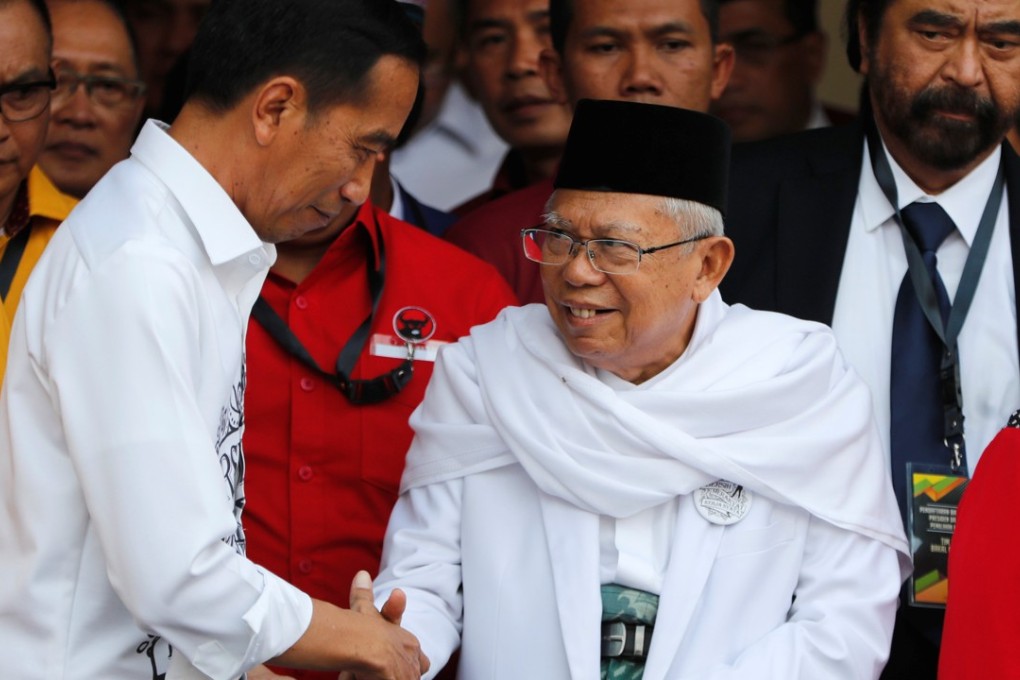On Reflection | Does Ma’ruf Amin hold key to beating Islamic extremism in Widodo’s Indonesia?
- The running mate of the Indonesian president is remembered for his hand in toppling Jakarta governor Ahok on charges of blasphemy. In Singapore, he advocated ‘Middle Way Islam’. Who is he, really?

INDONESIAN ULAMA, or religious scholar, Ma’ruf Amin’s speech in Singapore last week was awaited with some anticipation.
Kyai Ma’ruf Amin, as he is referred to respectfully as an ulama, is now a vice-presidential running mate for incumbent President Joko Widodo in next year’s pilpres, or presidential election.
But who really is Ma’ruf Amin? What are his thoughts? How would he face an international audience? Needless to say, his speech at the lecture organised by the Singapore-based think-tank RSIS (S. Rajaratnam School of International Studies), was followed closely for a measure of the man who is, after all, within earshot of being Indonesia’s No 2 leader.
MIDDLE WAY
KMA, as he is also referred to, spoke as chairman of the Majlis Ulama Indonesia (Indonesian Ulama Council), though in a non-active capacity, having stepped down due to his nomination as a VP candidate. Also a veteran politician, Ma’ruf Amin wasted no time, diving straight into the theme of his talk on ‘The Emergence of Wasatiyyah Islam in Indonesia: Promoting Middle Way Islam and Socio-economic Equality in Indonesia’. Loosely translated, the term wasatiyyah connotes a middle way, a path of moderation that is balanced in all respects.

